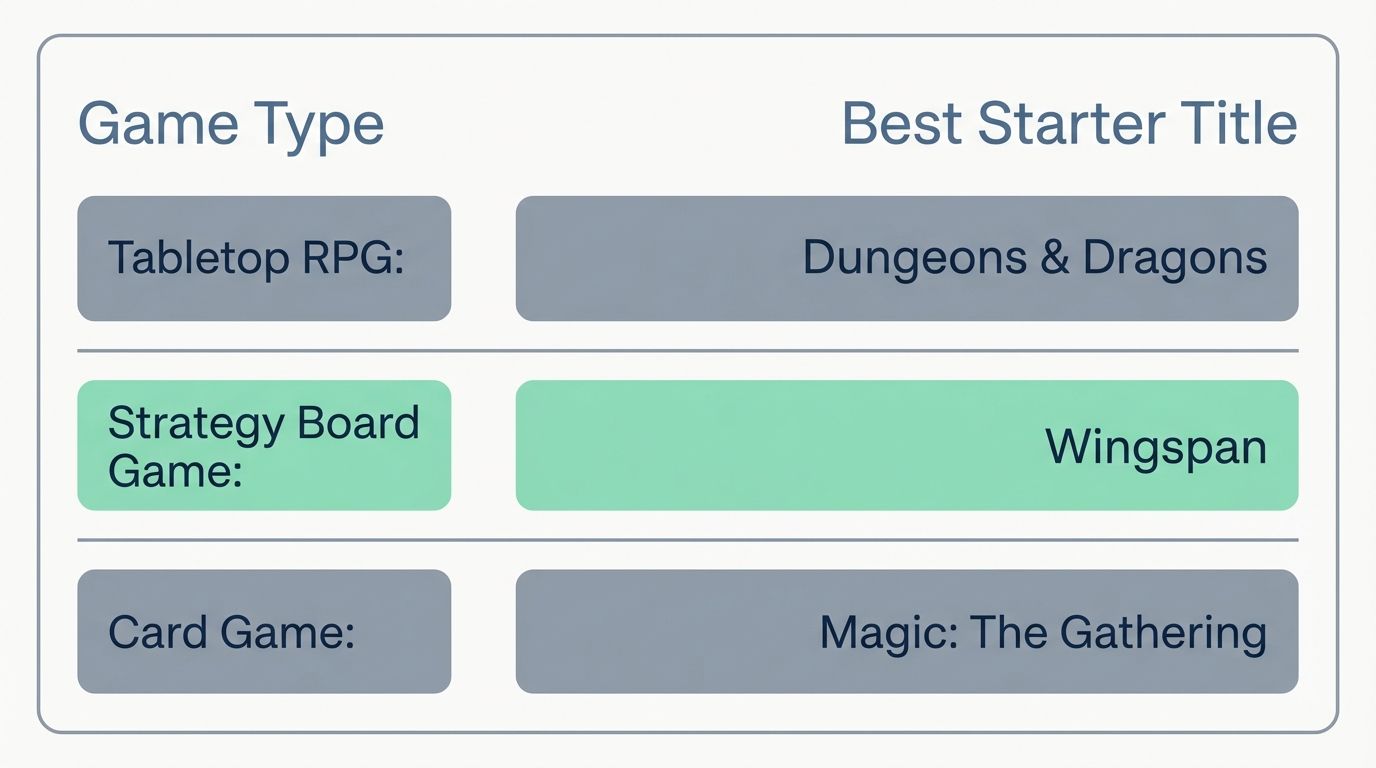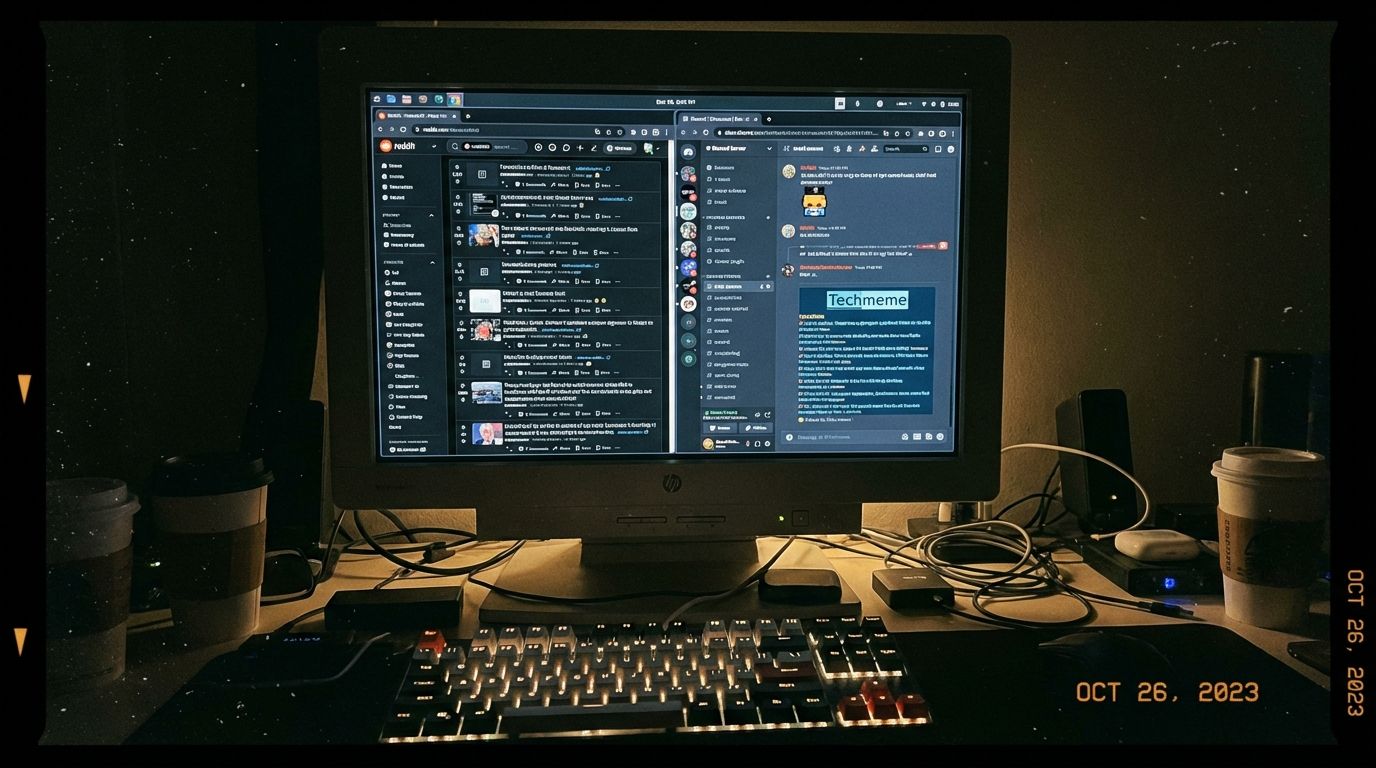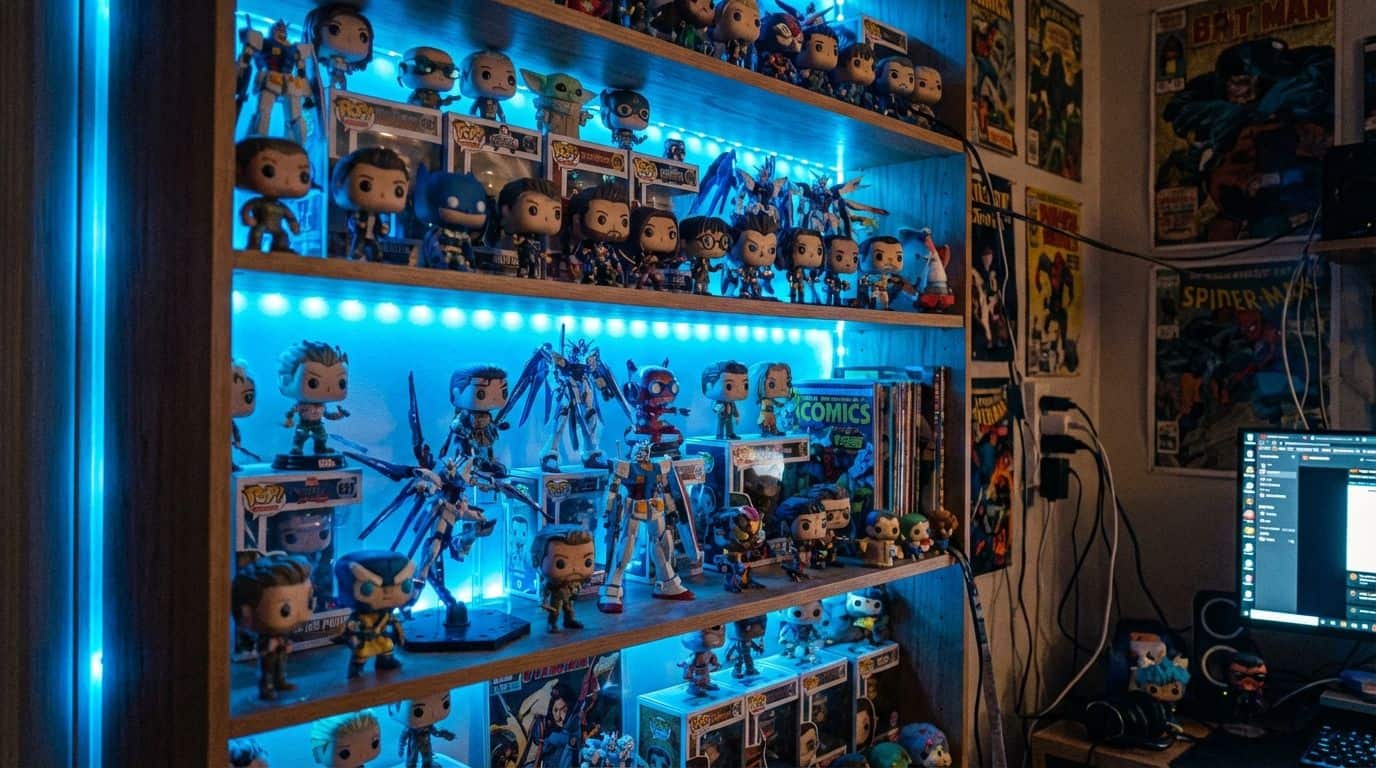You know that feeling when you walk into a room and hear someone confidently confuse Star Trek with Star Wars? It’s like a record scratch in your soul. I remember standing at a party once, drink in hand, listening to a guy explain how “Captain Skywalker” flew the Enterprise, and I could physically feel every Trekkie in the room wince in unison.
But finding your place in nerddom isn’t just about correcting trivia; it’s about diving deep into what you love. Whether it’s gaming marathons that stretch until dawn or finally understanding the axiomatic beauty of Kurt Gödel‘s incompleteness theorems, true nerdiness is a craft.
I’m going to share the exact steps I used to go from a casual fan to a dedicated geek, covering everything from the formal logical systems of coding to the best way to handle a D20. So, grab a beverage, and let’s get into the details.
Key Takeaways
Read the Latest Hits: Don’t just stick to classics; dive into 2025 releases like N.K. Jemisin’s The Starless Veil or play massive hits like Baldur’s Gate 3 to stay current.
Start Coding for Real: Learn Python—which has an average entry-level salary of around $115,000 in the US—using free tools like freeCodeCamp.
Find Your Tribe: Attend massive events like San Diego Comic-Con, which drew over 135,000 fans in 2024, or join specific online communities on Discord and Reddit.
Build Cool Stuff: Use a Raspberry Pi 5 to build a network-wide ad blocker (Pi-hole) or a retro game console; it’s hands-on hardware practice.
Wear Your Passion: Look for “subtle geek” gear at shops like BoxLunch or Redbubble, balancing comic book flair with everyday style.
Table of Contents
Embracing Geeky Interests

I geek out over everything from hard science fiction novels to strategy card games like Magic: The Gathering. Honestly, there is nothing quite like the rush of cracking a difficult coding problem or finally getting a Linux distribution to run smoothly on an old laptop.
What are the best science fiction and fantasy genres to explore?
Geeking out over science fiction and fantasy opens up a massive playground for your brain. I’ve spent years exploring these universes, and the best part is that the landscape is always changing with new, brilliant ideas.
- Read the New Canon: While classics are great, you need to know what’s hot now. Check out N.K. Jemisin’s 2025 release The Starless Veil. It blends space opera with fantasy in a way that completely rewrites the rules of the genre.
- Explore Hard Sci-Fi: Dive into the Three-Body Problem series by Cixin Liu. It uses real scientific thinking and physics concepts to tell a terrifying story about alien contact.
- Revisit the Classics: You can’t call yourself a star trek fan without watching The Next Generation. It tackles heavy philosophical questions, like Jean Grey-level identity crises, but with starships.
- Get Lost in Epic Fantasy: If you loved Harry Potter growing up, graduate to The Stormlight Archive by Brandon Sanderson. The magic systems are so detailed they feel like computing logic.
- Read Comics with Depth: Pick up X-Men runs that focus on social issues. Characters like Jean Grey aren’t just superheroes; they are vehicles for exploring complex themes of power and control.
- Watch “Smart” Anime: Otaku culture loves Cowboy Bebop for its style, but try Steins;Gate if you want a time-travel story that respects logical consistency and cause-and-effect.

Geek Fact: Science fiction isn’t just entertainment; it predicts the future. The “communicators” in Star Trek directly inspired the inventors of the first mobile phones.
How can I get started with gaming and tabletop adventures?
Gaming is the quickest way to find new friends. Whether you are rolling dice or clicking a mouse button, you are joining a global community of millions.
I always recommend starting with a game that encourages creativity or strategy. Minecraft is the perfect gateway because it teaches resource management and basic logic circuits (Redstone) that actually mirror real electrical engineering.

| Game Type | Best Starter Title | Why It’s a Geek Essential |
|---|---|---|
| Tabletop RPG | Dungeons & Dragons (5e) | With an estimated 85 million people engaging with the brand by 2024, it’s the shared language of modern nerdom. |
| Strategy Board Game | Wingspan | It replaces conflict with engine-building. It’s complex, beautiful, and perfect for geeks who love data and birds. |
| Card Game | Magic: The Gathering | It’s “Turing Complete,” meaning the rules are so complex you could technically build a working computer inside the game. |
When I want to get social, I head to a local game store for Friday Night Magic. If you are nervous about the rules, just ask. Most players love explaining the “stack” almost as much as they love playing. If you want to see where you fit in, check out these different types of gamers.
What are the basics of coding and technology to dive into?
Learning to code is the closest thing we have to actual wizardry. I remember the first time I wrote a Python script that automated a boring file-renaming task—it felt like I had unlocked a superpower.
- Pick the Right Language: Start with Python or JavaScript. According to 2025 data from Salary.com, the average entry-level Python developer in the US makes around $115,000. That is a serious incentive to learn.
- Use Interactive Tools: Don’t just read; do. Sites like Codecademy and Khan Academy offer instant feedback. I prefer freeCodeCamp because you build real projects for non-profits.
- Master the Keyboard: You need to touch-type. Go to Keybr.com and practice until you can hit 60 words per minute without looking. It changes how fast you can get ideas from your brain into the computer.
- Understand the “Why”: Read about Alan Turing and the history of the operating system. Knowing how the machine thinks makes debugging your code 10 times easier.
- Get Hands-On with Hardware: Buy a Raspberry Pi 5. It’s a tiny, $60 computer that lets you build your own servers, retro game consoles, or even a weather station.
Developing a Geek Mindset
I keep my brain on “active” mode constantly. Being a geek means you are never satisfied with just knowing that something works; you need to know how it works. It’s about maintaining a level of curiosity that most people lose after childhood.
How do I cultivate curiosity and a love for learning?
I treat learning like a daily habit, just like tooth-brushing. I don’t let a day go by without feeding my brain something new. It might be a video on Thomas Kuhn‘s structure of scientific revolutions or a deep dive into why comic books in the 90s had so many pouches.
One trick I use is “micro-learning.” I subscribe to newsletters like tldr.tech or Hacker Newsletter. They send me daily summaries of the most important tech news. This way, even if I only have 5 minutes while waiting for coffee, I’m learning about the latest paradigm shifts in AI or a new hypothesis in astrophysics.
If you are struggling to separate the hobbyists from the lifestyle geeks, read up on the difference between geek and nerd. It helps clarify where your specific brand of obsession fits.
Where can I find updates on niche geek topics?
You can’t rely on general news for geek stuff. You need to go to the source. I curate my own “digital newsroom” using RSS feeds and specific communities.

- Reddit is King: I check r/Games for industry news and r/printSF for serious science fiction book discussions. These communities are where news breaks first.
- Discord Communities: For real-time chat, I join Discord servers for specific tools or fandoms. The official Python Discord is incredibly helpful if you get stuck on a coding problem.
- Tech News Aggregators: I use Techmeme to see what the Silicon Valley crowd is talking about. It filters out the noise and gives you the primary sources.
- YouTube Educators: Channels like Veritasium or Computerphile break down complex mathematics and computing topics into bite-sized videos.
What are effective ways to master problem-solving skills?
Geeks love problems. I use a method called “Rubber Duck Debugging.” When I’m stuck on a bug or a complex argument, I explain it line-by-line to an inanimate object (like a rubber duck or a Funko Pop). 90% of the time, I find the solution just by forcing myself to articulate the problem clearly.
I also study formal logical systems. Understanding fallacies and how to construct a sound theory helps in everything from debating Star Trek fan theories to writing clean code. It turns every challenge into a puzzle that has a solution, rather than a wall that stops you.
Building a Geeky Appearance
I love rocking shirts with obscure references. It’s a secret handshake. When I wear my “Weyland-Yutani Corp” shirt, most people just see a logo, but a fellow Alien fan will instantly nod in approval.
How can I wear character-themed clothing or accessories?
Geek fashion has evolved. You don’t have to look sloppy to look geeky. I aim for “Subtle Geek”—clothing that looks good in a casual office but screams fandom to those who know.
- Shop Smart: I avoid the cheap, stiff cotton shirts. I look for soft blends on sites like Redbubble or BoxLunch. They often feature art from independent creators that is more unique than official merch.
- The Power of Pins: Enamel pins are my favorite accessory. A small Star Wars rebel alliance symbol on a denim jacket or a backpack is a low-key way to show your allegiance.
- Accessorize with Purpose: I wear a watch that features Nixie tubes (or a digital face that mimics them). It looks like cool industrial jewelry, but it’s a nod to vintage tech.
- Footwear Fun: Even dress shoes can be geeky if you pair them with socks featuring superheroes or mathematical formulas. It’s a pop of personality that you can hide during a serious meeting if needed.
What are good ways to showcase fandoms through collectibles?
My home office is my sanctuary. I display my collections not just to hoard stuff, but to surround myself with things that inspire me.
I focus on quality over quantity. Instead of buying 50 cheap toys, I save up for one high-quality statue or a signed print. For example, a signed poster from San Diego Comic-Con (which had over 135,000 attendees in 2024!) is a conversation starter that holds its value.

Pro Tip: Use lighting to upgrade your display. A simple LED strip behind a shelf of Funko Pops or Gundam models makes them look like a museum exhibit rather than a toy store shelf.
How do I experiment with geek-inspired fashion?
I like to mix “high” and “low” fashion. I might wear a sharp blazer over a button-down shirt that has a tiny, repeating pattern of Pac-Man ghosts. From a distance, it looks like polka dots; up close, it’s retro gaming glory.
Cosplay is the deep end of this pool. I started by just getting a high-quality replica prop, like a Doctor Who sonic screwdriver, and carrying it at conventions. It helps you get comfortable with the idea of “play” in public before you commit to a full costume.
Connecting with Geek Communities
I used to think being a geek was a solitary thing, but the internet changed that. Now, I swap theories with anime and manga fans in Tokyo and debate Dungeons & Dragons rules with players in London, all before lunch.
How can I join online forums and social media groups?
Finding your people online takes a bit of digging, but once you find the right niche, it is incredibly rewarding.
- Start with Reddit: It’s the front page of the internet for a reason. Subreddits like r/coding or r/scifi are massive, but the real gold is in the smaller subs like r/homelab (for server geeks) or r/MechanicalKeyboards.
- Join a Discord: Many content creators have their own Discord servers. If you follow a tech YouTuber or a Magic: The Gathering streamer, join their server. It’s usually a much friendlier place than open comment sections.
- Mastodon and Bluesky: As Twitter changes, many tech geeks have migrated to Mastodon. It’s a decentralized network that feels a lot like the old web—clunky but full of genuine passion.
If you aren’t sure where you fit, check out this guide on identifying common types of geeks to see which community matches your vibe.
What should I expect at conventions and meetups?
Walking into a convention center for the first time is overwhelming in the best way. The energy is electric. I try to attend at least one major con a year, like Dragon Con in Atlanta or PAX for gaming.
At these events, you will see everything from professional cosplaying that rivals movie sets to quiet corners where people are painting miniatures. The key is to pace yourself. The “Con Crud” (getting sick after a con) is real, so I always carry hand sanitizer and drink a ton of water.
How do I collaborate on geeky projects with others?
Collaboration is where skills level up. I learned more about programming by contributing to an open-source project on GitHub than I ever did from tutorials. Find a project that interests you—maybe a mod for a video game or a tool for tabletop role-playing games—and see if they need help with documentation or bug fixes.
Advancing Your Geek Skills
I don’t just consume technology; I try to control it. Whether it’s setting up a DHCP server for my home network or learning the facts behind quantum computing, I want to know what’s under the hood.
How do I learn programming or robotics effectively?
Learning technical skills is a marathon, not a sprint. I broke my learning down into small, manageable projects.
- Start with Free Resources: freeCodeCamp and HTML-CSS-JS.com are fantastic. They strip away the complexity and let you write code in your browser immediately.
- Pick a Hardware Platform: I recommend the Arduino Uno R4 for beginners. It’s robust, cheap, and you can make lights blink in 10 minutes. It bridges the gap between software and the physical world.
- Join a Local Maker Space: Most cities have “hacker spaces” or “maker spaces” where you can access 3D printers and laser cutters. The people there are usually eager to teach you know how.
What are some fun DIY tech projects to try?
Once you have the basics, build something useful. These projects justify the time you spend learning because they actually improve your life.

- Pi-hole Ad Blocker: Use a Raspberry Pi to block ads on every device in your house. It works at the network level, so even your smart TV stops showing ads.
- RetroPie Console: Turn that same Pi into a classic gaming console. You can play thousands of old arcade games. It’s a great lesson in Linux file systems and emulation.
- MagicMirror²: Build a smart mirror that displays your calendar, weather, and news while you brush your teeth. It looks like something from a sci-fi movie but runs on basic web technologies.
- Home Assistant Server: Take control of your smart home privacy. Instead of sending your data to the cloud, run a local server that controls your lights and thermostat.
How can I explore academic research in geek interests?
I like to go straight to the source. Google Scholar is a powerful tool. You can find papers on everything from the sociology of fandom to the physics of warp drives.
I recently read a paper on the computational complexity of video games. It turns out that playing Super Mario Bros. optimally is mathematically “NP-hard,” which is a fancy way of saying it’s incredibly difficult for even a supercomputer to solve perfect gameplay.
Balancing Geek Life
I love my hobbies, but I also have a job, a family, and a need for sleep. Balancing it all requires some strategy. I use my geek skills to manage my life, using tools like Notion or Obsidian to build a “second brain” that tracks my tasks and projects.
How can I manage time between hobbies and responsibilities?
I use the “Pomodoro Technique” with a geeky twist. I set a timer for 25 minutes of deep work, followed by a 5-minute break where I can read a comic page or check a game score. This keeps me focused but feeds my need for fun.
I also schedule my gaming. Tuesday night is Dungeons & Dragons night. It’s on the calendar, non-negotiable. By treating it like an appointment, I ensure I get that social time without guilt.
What are good self-care practices alongside geek passions?
Staring at screens all day destroys your eyes and back. I follow the 20-20-20 rule: every 20 minutes, I look at something 20 feet away for 20 seconds. It saves me from headaches.
I also invested in a high-quality ergonomic chair. If you are going to spend 8 hours coding and 4 hours gaming, your spine needs support. Think of it as your cockpit; you wouldn’t fly an X-Wing in a cheap plastic seat.
How Will Geek Culture Evolve in 2025?
We are living in the future we used to read about. Artificial Intelligence tools like ChatGPT and Midjourney are changing how we create and code. In 2025, I see geeks becoming the “AI whisperers”—the people who know how to talk to the machines to get the best results.
Virtual Reality and Augmented Reality are finally hitting the mainstream with devices like the Apple Vision Pro and Meta Quest 3. We are moving toward a world where our digital overlays are just as important as our physical reality. The definition of reality itself is getting blurry, and honestly, I am here for it.
The skills you build today—whether it’s learning Python, understanding networking protocols like HTTP, or just knowing how to build a community—are the tools that will help you navigate this new world. So keep learning, keep playing, and keep leveling up.
People Also Ask
What does it mean to experience paradigm shifts as an extreme geek?
For me, paradigm shifts are those rare moments when the entire rulebook changes, like the sudden jump from writing manual code to engineering AI prompts. As an extreme geek, I don’t just watch these pivots happen; I actively beta-test the tools driving them.
How can I spot a paradigm shift in my favorite hobby?
I track specific signals on the GitHub Innovation Graph and Hacker News, looking for sudden spikes where developers are abandoning standard tools for something radical. If smart people are struggling to solve a new problem with old methods, that friction usually points to a coming shift.
Why should I care about paradigm shifts if I want to level up my geek skills?
You need to pay attention because 2025 data reveals the half-life of a technical skill is now just 2.5 years, so your current knowledge expires faster than your hardware.
Can anyone learn to recognize and adapt to paradigm shifts like an extreme geek?
Absolutely, because adaptation is just a learned skill like any programming language. It requires adopting what Carol Dweck calls a “growth mindset,” where you treat every confusion as a bug to be fixed rather than a failure of your system.
References
https://www.facebook.com/groups/waywordradio/posts/10159763483468584/
https://core.ac.uk/download/pdf/76386333.pdf
https://www.amazon.com/Geek-Way-Radical-Transforming-Business/dp/0316436704
https://www.insidehighered.com/opinion/columns/learning-innovation/2024/11/21/university-culture-and-geek-way (2024-11-21)
https://ide.mit.edu/insights/4-key-lessons-from-the-geek-way/
https://pmc.ncbi.nlm.nih.gov/articles/PMC9442556/
https://www.facebook.com/groups/jentareads/posts/9206606502685432/
https://shop.geekeyewear.com/pages/blog.htmlhow-to-create-geek-fashion-tips-from-geek-eyewear/ (2023-04-11)
https://lpsonline.sas.upenn.edu/features/building-professional-network-online (2024-05-15)
https://paloaltou.edu/resources/blog/14-effective-ways-create-community-while-pursuing-online-masters-degree (2024-01-30)
https://www.higheredgeek.com/blog/3-ways-geek-culture-build-campus-community
https://www.geekextreme.com/how-to-make-friends-as-a-geek/ (2024-05-28)
https://www.freecodecamp.org/news/learn-to-code-book/ (2024-07-11)
https://github.com/orgs/community/discussions/163754
https://pmc.ncbi.nlm.nih.gov/articles/PMC4651513/
https://beardedprogrammer.com/self-care-geek-perspective/ (2020-04-21)
https://vocal.media/geeks/from-ai-to-ar-the-geek-trends-driving-social-media-now-2025-edition
